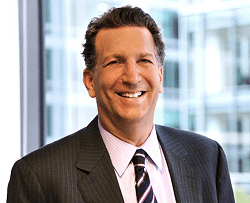Richard Levick on Maintaining Mental Health During The Big Pause
Have you considered why John Krasinski’s homespun video series “Some Good News” has proven so popular during the pandemic? Dan Gillison, Jr., CEO of the National Alliance on Mental Illness (NAMI), would tell you it’s because so many of us are looking for signs of humanity, for a way to celebrate our front-line heroes, for reaffirmation that somehow, someway, if we all stick together, we’re going to survive this mess. Chuckling along with Krasinski once a week has become part of America’s antidote.
NAMI was established four decades ago. But when I interviewed Gillison on Monday Mornings – our new live broadcast with Turbine Labs – he told me that mental health services have never been more crucial than they are right now. People across the spectrum – parents, teenagers, bosses, workers, caregivers, all of us – are reaching out to NAMI and other mental health advocacy groups. The pandemic has triggered a 200 percent jump in the number of calls and queries coming in via NAMI’s helpline and its toll-free number, 1-800-950-NAMI (6264).
It’s all tied, Gillison says, to our collective sense of anxiety – an apprehension that the stress of living in isolation and working remotely has become overwhelming. Those fears are likely to get worse before they get better, Gillison believes, as people come to grips with the likelihood that social constraints are going to stay in place for a while longer. It may be many months before our society gets back to anything approaching “normal.”
The message that that NAMI conveys to people seeking help is simple: We’re in this together, you are not alone.
My co-host and founder of Turbine Labs Leigh Fatzinger and I asked Gillison how someone dealing with potential depression would know that they should seek professional help. If someone is worried that the pressures – whether emotional, social, economic, or whatever – have become too much, Gillison says, they should contact NAMI or another respected group right away.
What are the worrisome signs we should be looking for in ourselves, our friends, our colleagues, and our loved ones? NAMI’s danger signs include excessive worrying or fear, confused thinking, extreme mood changes, prolonged feelings of irritability, and avoiding friends and social activities.
NAMI believes that teletherapy can be effective during the pandemic, so no one should worry that they won’t be able to get treatment because of social distancing.
Gillison’s mantra is powerful: We all have responsibility to look out for each other, which begins with looking out for ourselves. Bosses need to recognize the extraordinary stress their employees are under. If they spot someone struggling a bit, they should suggest that it’s no shame to seek help.
Maybe one of the benefits of The Big Pause is that it will help de-stigmatize mental illness, Gillison hopes. Seeking help isn’t a sign of weakness, he says. It’s a sign of strength.
Richard Levick
 About the Author: Richard Levick, Esq., @richardlevick, is Chairman and CEO of LEVICK. He is a frequent television, radio, online, and print commentator.
About the Author: Richard Levick, Esq., @richardlevick, is Chairman and CEO of LEVICK. He is a frequent television, radio, online, and print commentator.


